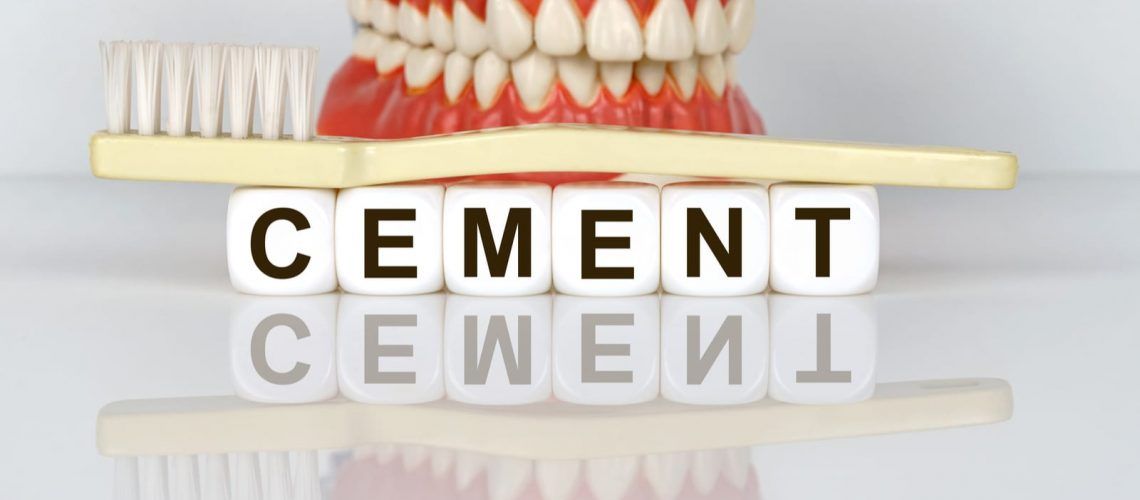Dental cement has been used for restorations for ages. It’s what gives restorations their adhesive power. Dental cement can enhance your restoration and make your smile a success. These compounds give your dentists the ability to provide long-term care when you need a tooth replacement. These types of cement come in multiple varieties, and here, we’re going to help you learn a little bit about dentistry by talking to you about the different types of dental types of cement, why they’re used, and why they’re such a great tool for dentists.
What is Dental Cement?
When a person thinks of cement, they often think of construction cement that forms the sidewalks and alleyways of our world. In a way, dental cement operates with that same purpose in mind – kind of. In its shortest definition, dental cement is a chemical compound made to bond two surfaces together. Still, its ingredients and chemical structure are what make it unique for dentists to use. Dental cement is specifically made to resist bite pressure produced by the teeth and jawbones. This cement is an adhesive material that’s highly resistant to decay and can easily blend with the restoration and natural tooth for making repairs.
What dentists love about these types of cement is the variety they have on a case-by-case basis. Because each person’s mouth is unique, dentists are required to be highly flexible in their ability to treat certain conditions. Thus, using the right cement matters significantly to help produce a successful treatment.
The Types of Dental Cements
If you’ve been working with your dentist for some time, your dentists will already choose their preferred dental cement to work with. Some dentists will even have multiple options at their disposal for some instances. If you have a good dentist, they’ll only use the best dental industry offers for tooth care. From preparing crowns to fixing partial dentures, dental types of cement come in these variations:
- Zinc Phosphate: Known as the original cement, zinc phosphate is used for preparing crowns, inlays, onlays, orthodontic appliances, and partial dentures. This cement composition produces high compressive strength, an acceptable film thickness, and high tensile strength that makes it hard to beat.
- Glass Ionomer: Made with glass powders and polyacrylic acid, the glass ionomer cement is a highly bondable cement that’s great with metal alloys and stainless steel restorations. While glass ionomer cement can also be used with porcelain restorations, it’s most preferred among the majority of dentists for crowns, bridges, posts, and inlays. It provides tensile strength and compressive strength that’s comparable to zinc phosphate.
- Zinc Polycarboxylate: This variation is the first cement to chemically bond to the tooth’s structure, making it highly valuable for dentists who want truly permanent restorations. It provides little pulp irritation, has a high bonding rate, and can attach to both porcelain and stainless steel restorations.
- Resin-Modified Glass Ionomer: This glass ionomer cement is enhanced with composite resin, which can be used for build-up restorations and can be used to restore crowns, bridges, orthodontic appliances.
Dental cement has a highly valuable place in dentistry. If you’d like to learn about how dentists use dental cement, contact Dr. Gina Covington at Covington Dental in Hickory, NC, to schedule an appointment.


